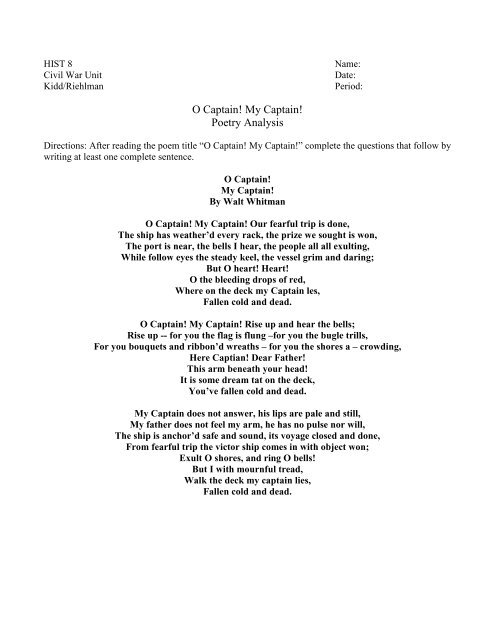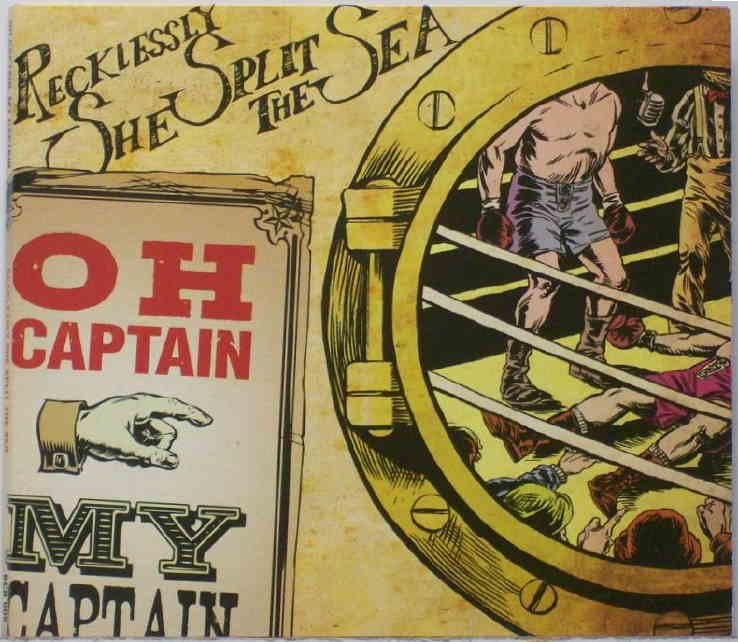

As such, Whitman effectively uses near end rhymes during several parts of the poem which serve two purposes: keep a dynamic flow in sound for comfort, and remind us of the disorder caused by the captain’s death. The central theme for the poem revolves around a world of comfort in a leader thrown into disorder and distress by death. It is important to note that not all of the rhymes are perfect rhymes it is of greater importance to recognize this is by design. Whitman also introduces an interesting rhyme scheme: AABCDEFE, GGHIJEKE, and LLMNOEPE for each respective stanza. This adds emotional effect to the recognition of the captain’s death in the ensuing lines.

This is perfectly executed in line 5 of the first stanza, which consists of one breve followed by three ictuses. This gives a comfortable and fluid rhythm to the poem which allows for Whitman to throw in specific pauses for enhanced effect. While Whitman is known to neglect both rhyme scheme and meter, O Captain! My Captain! has not only a definite rhyme scheme, but also contains a strong preference for iambic meter. The poem has three stanzas, each of which consists of eight lines. The poem expresses both remorse for the captain’s death as well as jubilation in the ship’s realization of its ultimate goal: winning the Civil War and abolishing slavery, which is seen as the “prize”. The “ship” mentioned in the first stanza is the United States that has just undergone a long and arduous war which has “weather’d every rack”. For this poem in particular, Lincoln –as President – is the metaphorical “captain” described in the poem. Whitman, along with most of the nation, regarded Lincoln as a hero. Written in 1865 and after the Civil War Walt Whitman’s entire poem is an allusion to the death of Abraham Lincoln, who was assassinated shortly after the Civil War was won. The ship is anchor’d safe and sound, its voyage closed and done įrom fearful trip, the victor ship, comes in with object won My father does not feel my arm, he has no pulse nor will My Captain does not answer, his lips are pale and still Rise up-for you the flag is flung-for you the bugle trills įor you bouquets and ribbon’d wreaths-for you the shores a-crowding įor you they call, the swaying mass, their eager faces turning O Captain! My Captain! rise up and hear the bells While follow eyes the steady keel, the vessel grim and daring: The port is near, the bells I hear, the people all exulting, The ship has weather’d every rack, the prize we sought is won O Captain! My Captain! our fearful trip is done Since this poem references a particular incident in history, my approach will be much more technical this time. This is an excellent poem that makes us feel the distress of the narrator. This week I will review O Captain! My Captain! by Walt Whitman. “Poetry is the least imposition on silence in a world of chatter.”


 0 kommentar(er)
0 kommentar(er)
